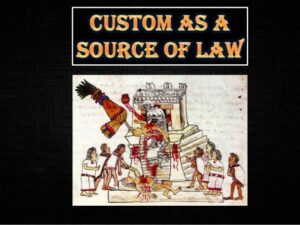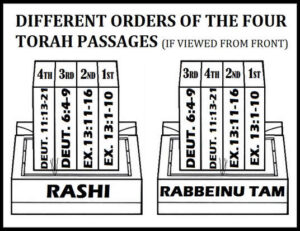Raboyseyee & Ladies,
We begin with a fantastic comment received last motzei shabbis just as the heylige Ois was getting set to watch Fridays’ Jeopardy recorded the night before. Not a minute later, longtime reader -seemingly every word of every parsha post – Shelly Green, who is both a doctor and an attorney, and the Ois had the following exchange: quoted verbatim.
Shelly: “Quick correction and fact check… On page 8 last paragraph you said “Ober says the Shelah Hakodosh, efsher based on the very first posik of the parsha which states “Odom ki Yakriv Mikem…” (When an adam/man brings a sacrifice offering), azoy….”
Shelly: It is not the first posik…. It’s the second
Ois response: Hahahaha!!! I love that comment; will definitely publish this weekend
Shelly: I guess other people don’t necessarily read it as carefully as they should… Or just don’t pay attention
Ois Response: Still laughing –But I do appreciate you reading word for word weekly and I guess for several years at least
Shelly: Yup! And checking my sources
———————————————————————————————————————
In the mazel tov department, this week we shout out mazel tov wishes to our friends Merav and Elliot Acoca upon the upon the engagement last week of her beautiful daughter Joycee Chabbot. Mazel tov to Joycee and her chatan David Baruch, he the son of Razy and Dr. Howie Baruch, they of Englewood New Jersey. May the new couple to- be- enjoy many decades of blissful marriage.
***************
Another mazel tov shout out to Sam and Tracie Shore (the eishes chayil -always there to correct me- pointed out that I have been spelling Tracie incorrectly; my bad). Shoin, where were we? Yes, wishing Tracie and Sam another mazel tov upon the bris and naming of their new grandson, born to their children Ryan and Rivky Shore. Welcome to the tribe Yehuda Ephraim Shore. May you be a source of nachas to your parents, grandparents and both extended families at least until 120.
**************************
 And in the adverting without getting paid department, the Ois is thrilled to plug his chaver Chaim Richter of RichterCaterers.com and his Pesach Menu. Chaim is among the elite glatt kosher caterers -all year round- but also specializes in prepared Pesach delectables which he ships to various cities. The Ois’s family very much enjoyed his delicacies last Pesach and have already placed an order for the coming Yom Tov in Orlando. There must be a medrish suggesting that Pesach must be celebrated within a fifteen-minute drive of Mickey Mouse and family. Bidieved (as a second position though not preferred) one may celebrate Pesach in other cities, so long as they are in the state of Florida. Check out Chaim’s menu here: RichterCaterers.com/menu
And in the adverting without getting paid department, the Ois is thrilled to plug his chaver Chaim Richter of RichterCaterers.com and his Pesach Menu. Chaim is among the elite glatt kosher caterers -all year round- but also specializes in prepared Pesach delectables which he ships to various cities. The Ois’s family very much enjoyed his delicacies last Pesach and have already placed an order for the coming Yom Tov in Orlando. There must be a medrish suggesting that Pesach must be celebrated within a fifteen-minute drive of Mickey Mouse and family. Bidieved (as a second position though not preferred) one may celebrate Pesach in other cities, so long as they are in the state of Florida. Check out Chaim’s menu here: RichterCaterers.com/menu
***********************************
That being said, if you prefer cooking, BBQing, broiling, or whichever way you enjoy your own very high-quality meats -USDA PRIME ONLY- but don’t feel like schlepping or shipping, check out the menu of www.prairiestreetprime.com. They offer the highest quality beef and other products delivered to your door. The heylige Ois has sampled their products. Not inexpensive but damn good quality and taste.

****************************************************************************************************
Finally, as a PSA (public service announcement), the Ois was asked to let the readership know of a new opportunity to be involved and to support the building of a new mikveh being built by Shaarei Zion of Hollis Hills. Here is a link. https://charidy.com/shaareizionofhollishills/efraimfrankel
**********************************************************
Queen Esther & Mordechai’s Relationship: What Was It?
We will explore that question below, but first this. Shoin, because today is Taanis Esther (the fast Esther declared for all the Jews in her surrounds, later expanded to include all Jews around the world) and because just last night, a reader -overly qualified to be labeled an oisvorf- asked if he needed to mamish fast today, and if the heylige Ois was planning to fast today, it was decided to begin -and maybe also end with Esther, Mordechai, relationship, and the good king. Want more on Parshas Tzav which is basically, but not wholly, a repeat of Parshas Vayikra? Check out the archives at Oisvorfer.com. Let us begin here.
Is the Fast of Esther mamish an obligation? Says who? Must we, some 2500 years later, continue fasting on this day? Or, is fasting on this day but a minhag (custom) that has taken hold? Shoin, the heylige Ois is here with good news: if you don’t take this fasting too seriously, you are not alone, and efsher not in such big trouble with the RBSO. It appears that you are not going to hell for eating on this day. Es far-shtey-tzich (it’s readily and easily understood) that other avayrois (sins) will get you directly there and you best brush up on your korbonis options just in case they make a comeback when the Moshiach arrives. Is he coming soon? Perhaps. As things are developing over in Ukraine, Russia, and the West, an earlier than expected appearance is no longer far-fetched. As it turns out, the questions regarding eating and fasting on this day were hotly debated by some bigwig sages including the Rayvid, Rashi, and Rabaynu Tam and others. Let’s begin with the Rayvid who says that the observance of Tanis Esther is not a mere custom. It is a rabbinical obligation based on a source in biblical writings (Divrei Kabbala). The Rambam (Hilchos Taanis 5:5) agrees.
Ober says the Bais Yoisef (Orach Chaim 686 s.v.) citing the Shibolei Haleket, citing Rashi, mamish farkert (opposite): Says Rashi and who knew more or better about any topic under the sun, azoy: observance of Taanis Esther is neither a biblical nor a rabbinical obligation. What is it? It’s merely a minhag (custom). And says Rabaynu Tam (Rosh, Megillah 1:1) – he best known for the extra set of Tifilin some don during the week, azoy: Taanis Esther is a rabbinical obligation. And the bottom line?

Mistama you aren’t giving this argument much thought as go about your day eating and noshing as if it were a regular Wednesday, ober lemyseh (in reality), this argument among the big guns does have implications. What are they? Ver veyst? Says the Ramo (Orach Chaim 686:2): “this fast is not an obligation; therefore, we may be lenient regarding the fast in case of needs such as a pregnant or nursing woman or a sick individual.” Seemingly, the Ramo holds like Rashi; Taanis Esther is merely a custom. And guess what? It appears that the Mishna Berura and the Aruch Hashulchan do not record any objection among the Acharoinim (later Rabbis) to this ruling. Moreover, the Ramo’s ruling represents normative Halocho. And more good news: The above discussion wherein the heylige Ramo suggests that Taanis Esther is but a custom, concerns Taanis Esther on its regularly scheduled day, meaning on days when Taanis Esther is observed in its regular time slot. In years when the fast is a nidcha (pushed back or even ahead due to scheduling conflicts), things are even more lenient. Bottom line: it appears that although you thought you were sinning while enjoying today’s meals – mistama you ate more than on a regular day- seemingly, your sinning today is more related to your other chazzerish behavior. Efsher you were eating forbidden fruit, say it’s not so please. Let’s review: if you were but eating with the eishes chayil and the mishpocho on this day, it appears that you might be ok. Ober if you were eating out elsewhere, if you chap, or partying with Vashti or someone of her ilk, you are guilty.

Back to Moshiach: Says the Rambam (Hilchois Megillah 2:18) azoy: “although we will no longer commemorate national tragedies (like Tisha Be’Av) after the arrival of the Moshiach, the days of Purim we will observe.” Ober according to Rashi and even the Rabbaynu Tam, we will likely not observe Taanis Esther after Moshiach arrives. And since Taanis Esther is but a commemoration of the near tragedy that Homon placed on our ancestors, we will not, in the days of Moshiach, commemorate such tragedies. The bottom line: while our sages differ on how this fast day will be observed in the future, it does appear that Rashi’s theory seems to be accepted as the Halachic norm. Gishmak!
The bottom line? The Ois is reminded of a discussion he had some years back with a now retired but much respected rabbi here in the 5Towns. Asked the Rabbi of the Ois azoy: which is more important- a din (Law) or a minhag (custom). Answered the Ois: of course, the law is more powerful than is a custom. Ober said the good rabbi that the Ois was wrong and he had proof. Said he: there is a din (law) that if a person borrows money from his chaver (buddy), he is obligated to repay the loan. However, the custom is not to! Shoin and settled. Using that logic, it would appear that we are supposed to fast on Taanis Esther because it’s the minhag to do so, no matter on what day of the week it eventually lands on. On the other hand, if you didn’t, nisht giferlich (not terrible) and certainly not as terrible when compared to other sins you may have committed today and on other days. More good news: Yom Kippur is not too far off. Veyter.
Shoin, let us now jump into the tile: just who was Esther? What was her relationship to Mordechai? Was there a biological relationship between Esther and Mordechai? Were they cousins? Was he Esther’s uncle? Was he efsher Esther’s adoptive father, or even her husband? Doesn’t the Megillah address these questions? It does, and does not. In fact, the questions posed above are davka driven by the somewhat confusing wording of the Megillah and without learning what the heylige Gemora or the myriad medroshim (commentators) have to say about Esther, Mordechai and the good king, we know precious little with certainty. Shoin, let’s spend a few minutes reviewing a number of eye-opening givaldige sources; you will not regret the read. Their take on Esther is informative, creative, imaginative, juicy, tantalizing and more. A few might also be true. which one’s? ver veyst! The various sources seek to plug the holes left wide open by the lack of clear and decisive information about Esther. As an aside, king Achahsveyroish did just that, if you chap. Let’s quickly do a shtikel background check. Let us begin with this one posik from the Megillah (Esther 2:7) which speaks to her background:
אסתר ב:ז וַיְהִ֨י אֹמֵ֜ן אֶת־הֲדַסָּ֗ה הִ֤יא אֶסְתֵּר֙ בַּת־דֹּד֔וֹ כִּ֛י אֵ֥ין לָ֖הּ אָ֣ב וָאֵ֑ם וְהַנַּעֲרָ֤ה יְפַת־תֹּ֙אַר֙ וְטוֹבַ֣ת מַרְאֶ֔ה וּבְמ֤וֹת אָבִ֙יהָ֙ וְאִמָּ֔הּ לְקָחָ֧הּ מָרְדֳּכַ֛י ל֖וֹ לְבַֽת:
He (Mordechai) was foster father to Hadassah—that is, Esther—(was) his uncle’s daughter, for she had neither father nor mother. The maiden was shapely and beautiful; and when her father and mother died, Mordechai adopted her as his own daughter. Uncle? Seemingly not! Based on this posik, Esther was the daughter of Mordechai’s uncle, and thus, Esther and Mordechai are first cousins. When she was orphaned, Mordechai adopted her. Bottom line: they were first cousins but Mordechai and efsher we can kler that but played the role of uncle.
Says the medrish (Esther Rabbah 6:5; BT Megillah 13a) azoy: Esther was an orphan who was raised in the house of her uncle Mordechai (Esth. 2:7). Her uncle? Her father died during her mother’s pregnancy, and her mother, passed nebech, during childbirth. Left alone as a baby, Mordecai had to care for Esther’s nursing but how? Says another medrish (Bereishis Rabbah 30:8) azoy: he could not find a wet nurse and that he himself -miraculously mamish- was able to produce milk- and he nursed her. Hey it’s medrish where anything can happen. Ober says another (Medrish Tehilim, on Ps. 22:23) azoy: Mordecai’s wife nursed the infant. Got milk? Mordechai was married but not to Esther? He had another wife?
Ober, if Mordechai was already married, what was he to Esther? Shoin, as explained above, he was her first cousin who played uncle. And if that’ the case, why do many taka refer to him Esther’s uncle? And taka many say just that, ober who? And the answer? No traditional rabbinic text claims that Mordechai was Esther’s uncle. Fartig: not her uncle. Ober, let’s check out Josephus, who writes: Now among the many who were gathered together, there was found in Babylon a girl who had lost both parents and was being brought up in the home of her uncle), his name being Mordechai (Antiquities of the Jews, 9:198). Bottom line: he was her uncle.
Case closed? Not! Because as we will read mamish just below, other sages have Esther and Mordechai in a deeper relationship; they were mamish married! Says the heylige Gemora (Megillah): Esther was Mordecai’s wife and taka says the Megillah (Esth. 2:7): “Mordecai adopted her as his own daughter [literally: took her le-vas],” which the midrash understands as: Mordecai took her le-bayis, that is, as a wife (BT Megillah loc. cit.). In other words: by adding one letter to ‘’lebas” meaning daughter, he took her to be his lawfully wedded wife and shoin. Who says that one can add a letter (in this case the Yud) and then proclaim that Esther was Mordechai’s wife? The heylige Gemora quoted above where a Tanna taught in the name of R. Meir:
תנא משום רבי מאיר: אל תקרי לבת אלא לבית.
“Read not ‘for a daughter’ [le-vats, but ‘for a house’ [le-bayis].” In other words: in rabbinic exegesis, the term bas is understood as bayyis which often carries the meaning “wife.” In fact, a common word for “wife” in the Aramaic (language of the Gemora) is “דביתהו,” meaning “of his house.” And check this out: Says the heylige Amoira Yossi ben Chalafta, (Rus Rabbah parsha 2) azoy: this idea that bayis means wife is on solid ground (even if Esther herself was swept off her feet, if you chap)
א”ר יוסי בן חלפתא מימי לא קריתי לאשתי אשתי ולביתי ביתי אלא לאשתי ביתי ולביתי אשתי
- Yossi ben Chalfta said: “Never in my life have I referred to my wife as ‘my wife’ or my house as ‘my house.’ Rather, [I always refer to] my wife as ‘my house’ and my house as ‘my wife.’”
Based on this pshat, efsher you’re now klerring azoy: how was it that Esther, a married woman, found herself in the royal harem reaching out, touching, and efsher more, the king’s royal scepter, if you chap? Ver veyst and more on her marital status below, but it definitely adds some color to the great Purim story and her very sad early life. On the other hand, this would certainly let us understand why Mordechai was hanging around the royal courtyard; his wife was ‘taken’ by the king and he was there checking on his wife. Bottom line: he was her husband!
Let’s review: based on the plain meaning of the words in the Megillah, Mordechai and Esther were first cousins. Ober Josephus without much backup in Jewish sources, claims Esther was Mordechai’s niece and, based on adding a letter to the word bas (meaning daughter or stepfather, with Mordechai’s being the stepdad), Esther was Mordechai’s wife. Got all that? Great! In any event, what difference does that make too you and us? The bottom line: she took one for the team and saved the Yiddin from gloom, doom and extinction at the hands of Homon; boo! Veyter.
How old was she when taken to the king’s palace? Ver veyst and that depends on which medrish talks to you. The Megillah doesn’t tell us and of course when there is no solid information, people speculate. Of course, the medrish knows her age. How? They made it up! Says one: she was forty years old, says another that she was seventy-four, which is the gematria (numerical value) of the name “Hadassah”, her second name, according to some. Yet others suggest that she was seventy-five and one more has her at eighty. 40, 74, 75 and 80? These are not the images that most of you chazerim conjured up when you conjured up of Esther being selected over all others, ober ver veyst? Would the king replace Vashti, who, until her demise, was according to yet another Gemora, one of the most beautiful women in the world, with a 40 year old? Were you there? Was anyone you know there? Bottom line: how old was Esther when taken? Ver veyst!
Ober didn’t we learn that Esther was mamish a beauty? Isn’t that what they taught us in yeshiva and didn’t we always conjure up images of a young Esther? Were we wrong? How could she be 75 or 80 and described as so strikingly beautiful? Ober says the same heylige Gemora (Megillah 15a) azoy: Esther is included among the seven most beautiful women in the world and as the Megillah teaches us, she found favor in the eyes of everyone who gazed upon her. Not just was she beautiful but says the heylige Gemora (Megillah 13A) about her sexuality, azoy: if Achashveyroish “wanted to find in her the taste of a virgin, he found it; if the taste of a non-virgin, he found it.” Seemingly, she was quite the dish! Was she a version of the Mun the Yiddin enjoyed in the midbar?
Says the medrish: Esther hid from Achashveyroish’s agents who sought women for the king. She succeeded in remaining concealed for four years, but was eventually found and brought to the royal palace. Unlike the other women, who wanted to be chosen, Esther tried to evade the king, but she was the one picked to be queen. And what do we learn from this? That her selection was part of the divine plan; isn’t everything? Seemingly, Esther was meant to rule in order to bring deliverance to all the Yiddin and so says the (Seder Oilam Rabbah 29; Midrash Panim Acherim, version B, para. 20).
Another medrish: Esther was given seven maids to serve her in the harem; the Rabbis comment that she used them in order to count the seven days of the week [to know when the Shabbis fell, so that she could observe it even in the harem]. Gishmak! One tradition states that she was served kosher food in the harem; of course! Though she didn’t tell anyone she was Jewish, she did order and enjoy kosher food, maybe even sushi – why not? Another medrish asserts that she was given pork rinds, and yet another suggests that Esther, in order to maintain her kosher standards, ate only seeds while in the harem. What did she eat? Ver veyst? The good news for Esther? This week’s parsha of Tzav does provide some new and good information -with details- on the korban Oshom, aka: the guilt offering. Lets’ get real: who amongst us isn’t guilty of something.
Earlier we mentioned that according to many, but certainly not all, Mordechai married Esther. According to others, he was but her uncle who gave her shelter. According to that tradition, Esther, previously unmarried, was now married to and living with a goy; albeit the king. Ober, according to those in the Gemora who suggest that Esther was mamish married to Mordechai, wasn’t she committing adultery by also being married to and sleeping with the king? Ober not to worry. Since the Gemora and medrish loved Esther, of course they found a way to make it all kosher and here’s how.
Though she may have technically been with the king, she wasn’t sleeping with him because she enjoyed the royal treatment. Instead, she is viewed as having been forced to sleep with the king against her will. In other words, pshat could be that while she was physically with the king, emotionally she was elsewhere. Grada both men and women are capable of this; that for another day. And says the heylige Gemora (Sanhedrin 74b) azoy: because of her passivity, her life with the king was not thought to entail illicit sexual intercourse (a grave sin, for which one should “be killed rather than transgress.”) Consequently, Esther was not considered to be a married woman who willingly engaged in adultery, and she was therefore permitted back to Mordecai once the king was done with her. And the final shocker? Says the Gemora (Megillah 13b) azoy: Esther continued to live with the Mordechai, at the same time that she was married to Achahsveyroish. Shreklich (OMG!) WARNING: Do not try this at home!
Ober didn’t we learn and indeed we did, that the good queen voluntarily approached the receptive king? How could we consider her to be forced into the marriage and relations when she touched the scepter and mistama took one, not just for the team but for the entire nation of Yiddin? Taka excellent questions and says the heylige Gemora that the game did indeed change when Esther went and on her own free will, touched the magic scepter and did who knows what with you know who, in order to persuade him to cancel Homon’s evil decree. See chapter 5 for more details. The Rabbis taka perceived this going and coming as having sexual connotations, which therefore had tragic consequences for Esther and for Mordecai as of course further described in the heylige Gemora (Megillah 16a); check it out.
Did Esther get pregnant from either Mordechai or Achahsveyroish? Yet another excellent kasha, one the heylige Gemora address as well. According to some, she did not! And why not? Seemingly, she had protection, seemingly not just from the palace guards, if you chap, and taka, so says the Gemora; OMG! Ober says the medrish (Esth. Rabbah 8:3): she did become pregnant by Achahsveyroish but miscarried. One more medrish will tell us that not only did Esther become pregnant but she was also the mother of “the last Darius” (idem) or of Cyrus.
Ober what about hilchois Nidda? We can accept that she was living with Mordechai and or with the king. We can even accept that she had kosher and maybe some pork. And we can even chap that she got pregnant and had a baby, got pregnant and aborted or never did, because she used protection. But what about the very strict hilchois Nidda? Nu, not to worry, the Gemora devotes extensive attention to Esther’s observance of the laws of Niddah. How did she keep these? Seemingly, Mordecai would walk about in front of the harem in order to rule for Esther regarding menstrual spotting. Gishmak! Another pshat has Esther showing the spotting from her menstruation to the local Toirah scholars; efsher a forerunner of women dropping off their unterzachin (panties) to their local rabbis for immediate inspection. Thankfully, a few women are now qualified and better equipped to handle these sensitive matters. Why male rabbis were – for thousands of years- entrusted with women’s underwear, ver veyst?
The bottom line: which of these opinions in the heylige Gemora or myriad medroshim are rooted in facts, ver veyst. One cannot make this all up, can one?
An easy fast, a fraylichin Purim to all, and because it’s also St. Patrick’s day tomorrow, a shout out to all our Irish friends.
The Heylige Oisvorfer Ruv
Yitz Grossman
